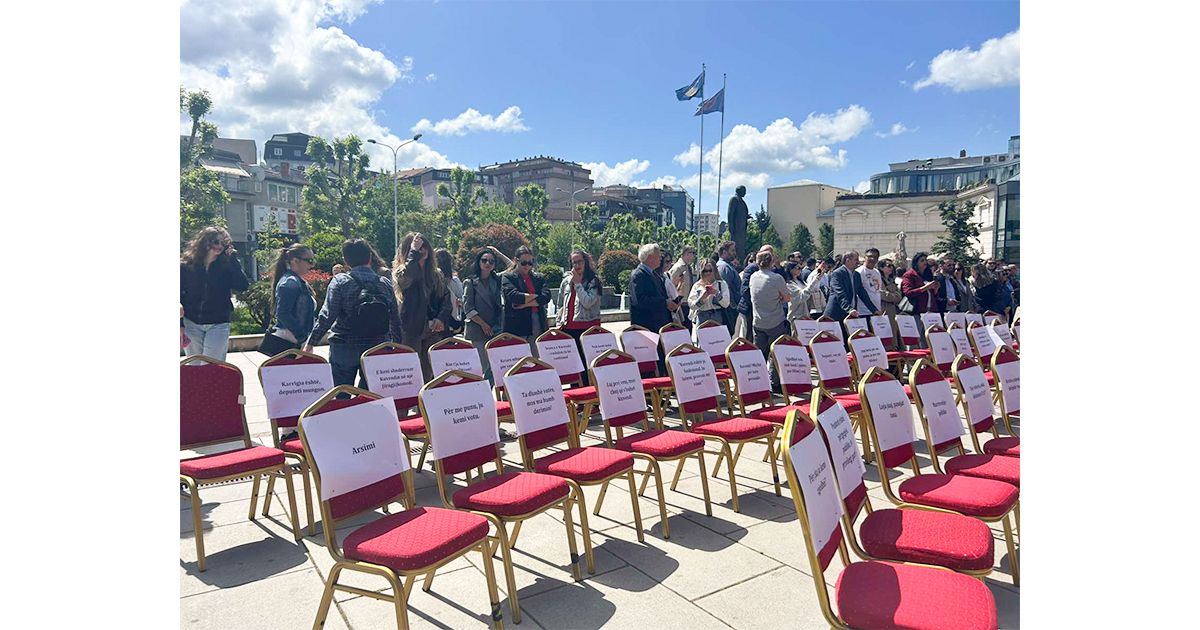Writer Mariela Dabbah initiated the Red Shoe Movement, nicknamed “Red Shoe Tuesday” in 2012 as a day when women wear red shoes and men sport red ties, signalling their support for women’s leadership and gender equality at work.
Since then, red shoes have been used in several exhibitions to recall women who have suffered gender-based violence, especially those who have lost their lives to violence.
At FemFest artistic feminist festival in Albania in March 2023, the public call was made for all women to wear red shoes every Tuesday, as a sign of solidarity.
First, red shoes symbolize violence against women, and the women who have lost their lives as a result of violence against women. We wear red to remember them, to never forget and to remind ourselves for whom we fight to end violence, the social norms that allow for violence against women and all impunity for such violence.
Second, red is a colour of power and is illustrative of women’s strength. It also serves as a sign of solidarity among women. When we wear red, we commit to support other women and not to speak negatively about them, towards strengthening solidarity among women, and strengthening the movement.
Red is a sign that we show, visibly, that we are together as part of a movement.



